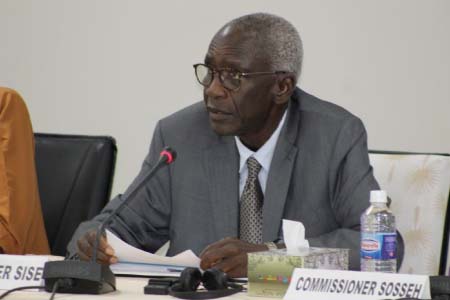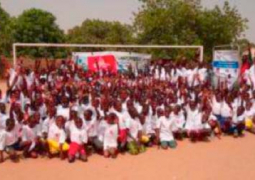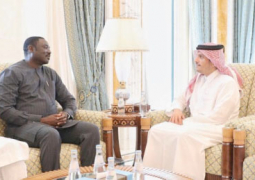
On
Thursday October 31, the TRRC concluded its 9th session of public hearings.
During that session, 15 witnesses testified, bringing the total number of
witnesses to testify before the Commission to 144. Thirty-one of these witnesses
were female, 113 male. Thirty-two were perpetrators and alleged perpetrators.
The 9th session was yet another phase of the public hearings of the Commission
dedicated to victims of sexual and gender-based violence who, against all odds,
were willing to come forward and recount in public their private pain, pain
that they had suffered in silence for so long.
Sexual
violence and sexual slavery are terrible crimes that can shock the human
conscience as we have seen recently in the trial, conviction and sentencing of
Jean Bosco Ntaganda at the International Criminal Court. These terrible crimes
must be taken seriously, investigated and exposed no matter by whom they were
committed. The perpetrators of these crimes cannot and must not escape justice.
Jean Bosco Ntaganda has not escaped justice!
The
testimonies of victims during the 9th session revealed that officials in the
highest echelons of government and their subordinates inflicted upon weak and
vulnerable women horrendous sexual violence and abuse that not only violated
the relevant criminal laws of the land, but was also a stain on the moral fiber
of The Gambia.
The
Commission was appalled to note that after sharing their painful experiences of
sexual violence with the Gambian public, some of these women had to contend
with a barrage of vilifications from some members of our society. So bad was
this negative backlash against these brave women that the Commission had to
issue a press statement urging restraint and respect for these victims.
Perhaps
we should share the fact that those courageous women who came forward to
publicly testify about being sexually violated are a select few among many with
whom the TRRC has had conversations but who declined to testify either publicly
or behind closed doors for a number of reasons, but particularly because they
dread the public stigma and insults that will follow them afterwards.
The
Commission, of course, fully understands and respects the decision of these
women not to testify. The Commission equally feels the pain of those who
testified and were subsequently stigmatized and vilified.
The
Commission appeals to all members of the public to be more sensitive to the
pain of these vulnerable women and to respect their privacy and integrity. The
Commission urges all victims to please come forward and file their complaints
with the TRRC, even if they are unwilling to testify. Victim participation in
this process is extremely important in helping the Commission get to the truth
of what happened regarding sexual and gender-based violence and other forms of
human rights abuses.
In
this 10th session of public hearings that starts today, November 11 and will
end on December 5, the Commission will hear testimonies on the 2009 witch
hunting exercise conducted against innocent Gambians by the former president
and members of his security forces, with the help of sorcerers. Where
necessary, the Commission will, during the course of these hearings, hear
testimony on other forms of human rights violations and abuses. It should be
noted that the venue and format of this session differs from our previous
public hearings in two important respects:
First,
with the exception of the first week of the hearings, i.e. from November 11 –
14, the rest of the public hearings will be held in the villages and towns of
Sibanor and Jambur in the West Coast Region, and Essau in the North Bank
Region. Second, this session will last four weeks, instead of the usual three.
It
is anticipated that all the hearings will be covered and streamed live by both
QTV and other media houses and journalists. Hearings for the first week of the
session from November 11 – 14 will be held here in this hall. From November 18
– 21, the hearings will be held in Jambur, and from November 25 – 28 in
Sibanor. During the fourth and final week of the session, from December 2 – 5,
the Commission’s public hearings will be held in Essau in the North Bank
Region.
In
preparation for these public hearings on the witch hunts, staff from the TRRC
secretariat and legal team with the support of the UNDP transitional justice
project conducted a series of pre-hearing outreach activities in Sintet,
Sibanor, Jambur and Essau.
The
teams visited all these communities and met village heads, kabilo heads, Imams
and other elders with a view to informing them of the Commission’s work plan
for this session, seeking their support and blessings, and identifying suitable
venues for the public hearings in their respective areas. We are glad to report
that all these community engagements went very well indeed and proved very
fruitful. Our staff will continue working on outreach and the logistics
required for these regional hearings in the coming days and weeks.
Finally,
please allow me, on behalf of the Commissioners and staff of the TRRC, to
reiterate this Commission’s firm resolve to execute the mandate entrusted to us
by the people of this country to the best of our ability and strictly in line
with the requirements of the TRRC Act.
While
we have covered a lot of ground on our projected two-year work plan, there is
still a lot of work to be done. And so as we start this 10th and final session
of public hearings for 2019, we continue to crave the support and prayers of
all members of the general public.
Thank
you for your kind attention.



